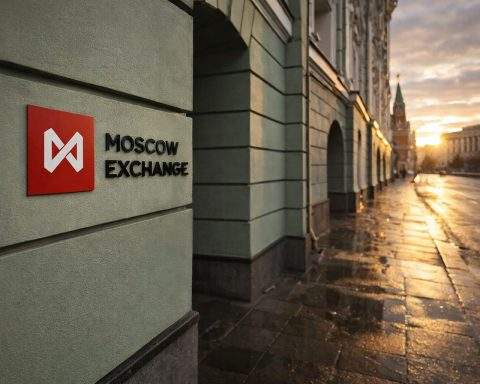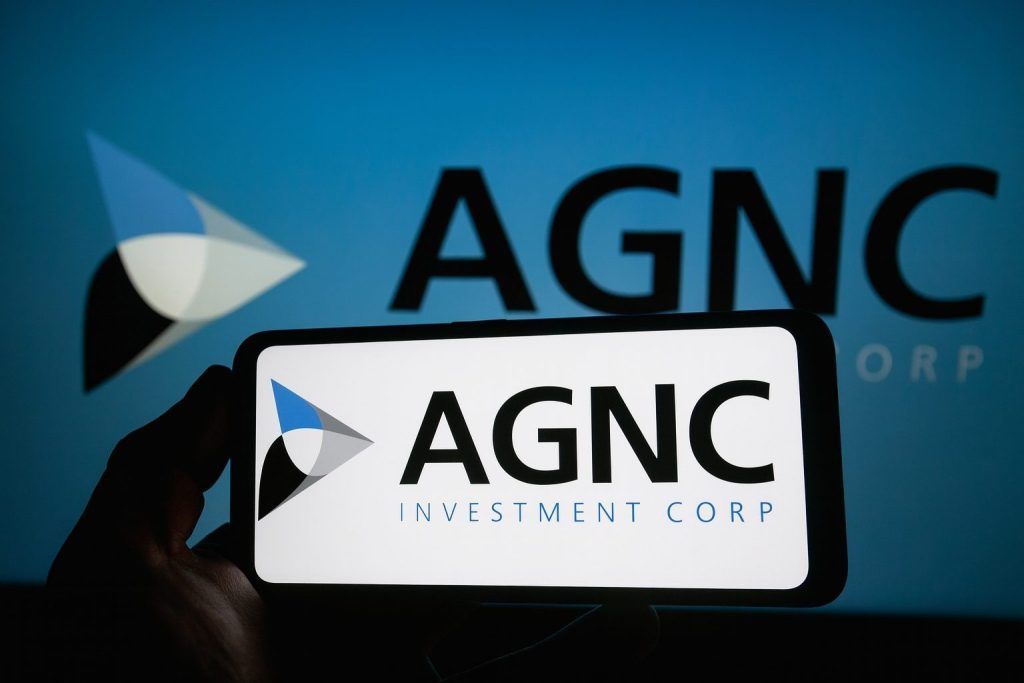Boeing Co. (NYSE: BA) shares are trading higher on Wednesday as investors cheer more than $7 billion in new U.S. defense contracts, even while fresh cuts to NASA’s Starliner program highlight ongoing risks in the aerospace giant’s space and commercial businesses.
As of the latest New York session on November 26, Boeing stock is trading around $187 per share, up roughly 2–3% on the day, with intraday trading between about $183 and $188 and volume above 4.5 million shares. This bounce comes after a bruising November in which the stock has fallen almost 18–19% over the past month, leaving investors split on whether today’s move is a relief rally or the start of a more durable recovery.Quiver Quantitative+1
Boeing stock price today: rebound after a rough November
Market data and fresh valuation research put today’s rally in context:
- Price action: Around mid-session, BA trades near $187.38, up about $4.94 from the previous close, an increase of roughly 2.7%.
- Intraday ranges: The stock opened near $184, dipped to roughly $183.1, and has tested highs just above $187.5.
- Recent performance:
- Over the past month, Boeing has dropped nearly 18–19%, according to social‑data tracker Quiver Quantitative and valuation site Simply Wall St.Quiver Quantitative+1
- Simply Wall St estimates the shares are still modestly up mid‑single digits year to date, while another data set cited by Stocktwits pegs year‑to‑date gains at roughly 2%, far behind the ~38% rally in the iShares U.S. Aerospace & Defense ETF.Simply Wall St+1
In short, today’s bounce is real, but it’s happening against the backdrop of a sharp November sell‑off and material underperformance versus Boeing’s defense‑stock peers.
Pentagon awards over $7 billion in Apache and KC‑46A tanker contracts
The clearest catalyst for today’s move is a pair of large U.S. military contracts that together exceed $7 billion and reinforce Boeing’s position in key defense programs.
$4.7 billion AH‑64E Apache contract
Defense industry outlet Aerospace Global News reports that the Pentagon has awarded Boeing approximately $4.7 billion for new‑build AH‑64E Apache helicopters, Longbow crew trainers and related spares and equipment for the U.S. Army.AGN
- Work will be centered at Boeing’s Mesa, Arizona facility.
- The contract is expected to keep the Apache production line busy through about 2032, extending one of Boeing’s longest‑running and most strategically important rotorcraft programs.AGN
$2.47 billion KC‑46A Pegasus tanker contract (Lot 12)
In a separate award, the U.S. Air Force has signed a Lot 12 contract for 15 additional KC‑46A Pegasus aerial refueling tankers, valued at about $2.47 billion.Design and Development Today+3Flight Globa…
Key details from multiple contract reports:
- The deal covers 15 new KC‑46A aircraft plus associated software, G081 systems, subscriptions and licenses.ExecutiveBiz+1
- Production will take place primarily in Everett and Seattle, Washington, with deliveries running through 2029.AGN+1
- Boeing executives describe the contract as a stabilizing force for the KC‑46A supply chain and long‑lead components, reducing the risk of production disruptions.ExecutiveBiz+1
Taken together, industry coverage estimates the two awards at roughly $7.1 billion in new funded backlog for Boeing’s defense segment.AGN+2Reuters+2
Short‑form market reports from Benzinga and Yahoo Finance explicitly link today’s stock strength to these Pentagon wins, noting that the shares traded around the mid‑$180s shortly after the news crossed.Benzinga+1
NASA trims Boeing’s Starliner contract; next mission will be cargo‑only
Balancing the good news in defense, space‑related headlines remain a drag on sentiment.
On November 24, NASA publicly confirmed it had modified its Commercial Crew contract with Boeing, reducing the number of guaranteed crewed Starliner missions from six to four, with two additional flights now optional.wincountry.com+3NASA+3Reuters+3
Follow‑up coverage dated November 26 sharpened the picture:
- Next mission uncrewed:
- Australian Aviation reports that Starliner’s next mission, scheduled no earlier than April 2026, will fly cargo only to the ISS, with no astronauts onboard.Australian Aviation
- Contract economics:
- Space policy outlets say Boeing’s current Starliner contract value is about $3.73 billion, down from a potential total around $4.46 billion after the restructuring.SpacePolicyOnline+2Reuters+2
- Reason for the change:
- Articles from WebProNews and other space‑focused sites point to thruster failures and helium leaks during the 2024 crewed flight test, which left astronauts stranded longer than planned on the ISS and forced NASA to rely on SpaceX’s Dragon capsule for their return.WebProNews+1
NASA’s own commentary stresses that certifying Starliner remains important for “dissimilar redundancy” in crew transport, and that the cargo mission is meant to validate system upgrades before any future crewed flights.NASA+1 But from a stock‑market perspective, the reduced mission count and reputational hit reinforce the idea that Boeing’s space business is a long‑dated, higher‑risk component of the equity story.
Q3 hangover: 777X delay and big charges still weigh on sentiment
Today’s rally also needs to be seen against Boeing’s recent third‑quarter earnings shock, which helped trigger November’s slide.
In its Q3 2025 results, Boeing reported:investors.boeing.com+1
- Revenue of $23.3 billion, up strongly year over year on 160 commercial airplane deliveries.
- 737 MAX production stabilized at 38 jets per month, with joint FAA approval to increase to 42 per month going forward.investors.boeing.com+1
- 787 production holding at around seven jets per month.investors.boeing.com
- Operating cash flow of $1.1 billion and positive free cash flow of about $0.2 billion, a key milestone after several years of heavy outflows.investors.boeing.com+1
However, the quarter also included a $4.9 billion charge tied to further delays in certifying the 777X, with Boeing now guiding first deliveries into 2027, pushing back a major profit driver.investors.boeing.com+2manufacturingdive.co…
Coverage from Reuters and trade outlets emphasized that this charge, combined with regulatory scrutiny and lingering strike impacts, was a major factor behind the stock’s sharp pullback and why many investors remain cautious despite today’s contract wins.Reuters+1
Institutional moves and analyst views: “Moderate Buy” with wide dispersion
Two new institutional‑holding updates published today paint a nuanced picture of how professional money is positioning around Boeing:
- Manchester Capital Management cut its Boeing stake by about 45.7% in Q2, selling 1,496 shares and ending the quarter with 1,779 shares worth roughly $373,000.MarketBeat
- Financial Advocates Investment Management reduced its position by 78.6%, down to 5,707 shares valued around $1.2 million.MarketBeat
Despite these trims, MarketBeat’s data shows that institutional investors still own roughly 65% of Boeing’s float, with heavyweights such as Vanguard, Geode and Charles Schwab increasing or maintaining sizable holdings in recent quarters.MarketBeat+1
On the Wall Street research side, the picture is cautiously optimistic:
- A compiled analyst consensus rates Boeing as a “Moderate Buy”, with an average price target near $232 per share — roughly 25–30% above today’s trading level.MarketBeat+1
- Recent notes cited by MarketBeat show:
- Jefferies with a $255 target.
- Barclays raising its target to around $255 while maintaining an “overweight” stance.
- Bank of America lifting its target from $260 to $270 with a “buy” rating.MarketBeat+2MarketBeat+2
- At the same time, firms like BNP Paribas Exane maintain “underperform” ratings with targets as low as $150, underscoring how divided the Street remains.MarketBeat+1
Put simply, analysts on average see upside, but the spread between the most bullish and most bearish views is wide, reflecting real execution and regulatory risk.
Valuation check: Simply Wall St sees Boeing as deeply undervalued on cash flows
A fresh valuation deep‑dive from Simply Wall St, published today, argues that Boeing’s sell‑off has gone too far when viewed through a long‑term cash‑flow lens:Simply Wall St
- Using a two‑stage Discounted Cash Flow (DCF) model, the analysis estimates a fair value of about $350.79 per share, roughly 48% above the current price point they cite (~$182.44).
- The model assumes that Boeing’s free cash flow can recover from about –$5.9 billion over the last 12 months to more than $12.2 billion by 2029, as deliveries normalize and major programs like 737 MAX and 787 mature.
- On a price‑to‑sales basis, Boeing trades around 1.72x trailing revenue versus ~2.98x for the broader Aerospace & Defense industry, and near Simply Wall St’s own “fair” multiple of 1.96x for the company.
Their bottom line: Boeing looks significantly undervalued on DCF assumptions but only slightly cheap to fairly priced when compared to peers on revenue multiples.Simply Wall St
For investors, that means the upside case depends heavily on confidence that Boeing can execute its turnaround and hit those long‑term cash‑flow targets without further major setbacks in programs like 777X or Starliner.
Technical picture and retail sentiment: relief rally or trend change?
Short‑term market technicians and retail traders are also weighing in on Boeing today:
- Trend and volatility:
- Social‑data platform Quiver Quantitative highlights that Boeing shares are down nearly 19% over the past month, sparking intense debate on X (Twitter) about whether the decline reflects deeper structural issues or a buying opportunity.Quiver Quantitative+1
- Technical signals:
- A technical review from StockInvest.us notes a “pivot bottom” buy signal from November 24, with the stock up around 1.8–2% since that low, but also flags bearish signals from both short‑ and long‑term moving averages, leaving the overall short‑term outlook tilted negative.StockInvest
- Retail sentiment:
- A widely shared Stocktwits article published early today calls November Boeing’s worst month since September last year, citing a 9.2% decline for the month to date, but says retail sentiment on the platform is currently in “bullish” territory following the Pentagon contract news.Stocktwits+1
In other words, technicals still show a downtrend, but contracts‑driven news has sparked a sentiment shift among some retail traders, at least for now.
What today’s news means for Boeing stock
Putting all the pieces together, here’s how today’s developments shape the near‑term Boeing investment story:
- Defense is the bright spot.
The Apache and KC‑46A awards add more than $7 billion to defense backlog, underpinning revenue visibility in two marquee programs and helping offset volatility in commercial and space.AGN+2Reuters+2 - Space remains a reputational and financial overhang.
The Starliner contract downgrade — fewer guaranteed crewed missions and a cargo‑only next flight — reinforces concerns about cost overruns, delays and Boeing’s position relative to SpaceX in NASA’s crewed‑flight ecosystem.Reuters+3Australian Aviation+3WebProNews+3 - Q3’s 777X charge is still fresh in investors’ minds.
The $4.9 billion charge and 777X delay to 2027 underscore that major execution challenges remain on the commercial side, even as 737 and 787 production stabilizes and cash flows turn positive.investors.boeing.com+1 - Valuation vs. risk is the core debate.
- On one hand, long‑horizon models suggest Boeing is materially undervalued, with potential upside of 40–50% if free cash flow recovers as forecast.Simply Wall St
- On the other, technicals, recent price action and program risk (Starliner, 777X, lingering safety scrutiny) mean that drawdowns could continue if any new negative headlines emerge.StockInvest+2Stocktwits+2
- Wall Street is cautiously constructive, but not unanimous.
A “Moderate Buy” consensus and price targets well above today’s levels show that many analysts see room for recovery, but the presence of multiple “sell” ratings and underperform targets near $150 signal that skepticism remains significant.MarketBeat+1
Bottom line
On November 26, 2025, Boeing stock is enjoying a defense‑driven bounce as investors reward the company for securing more than $7 billion in Pentagon work that should support its Mesa and Everett production lines for years. At the same time, NASA’s decision to trim Starliner missions and shift the next flight to cargo‑only is a stark reminder that not all of Boeing’s big bets are moving smoothly.
For short‑term traders, the setup looks like a classic tug‑of‑war: strong contract news and perceived undervaluation vs. weak recent price action and ongoing program risk. For long‑term investors, today’s headlines reinforce the core question that will likely define Boeing’s stock over the next few years:
Can the company turn a powerful combination of defense backlog and commercial demand into consistent, high‑quality cash flows without further billion‑dollar surprises?
As always, this article is informational only and not a recommendation to buy or sell any security. Investors should consider their own risk tolerance, time horizon, and independent research before making decisions about Boeing stock.









